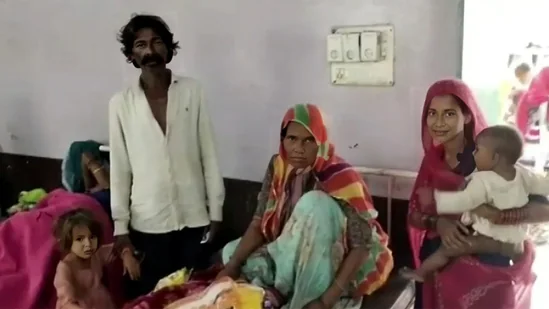The extraordinary birth of a 17th child to a tribal woman in Rajasthan has unsettled officials, exposing persistent gaps in India’s family planning outreach and the challenges of extending healthcare to its most marginalized communities.
A Rare and Risky Birth in Udaipur
When Rekha Kalbelia, a 55-year-old resident of Jhadol block in Rajasthan’s Udaipur district, delivered a child at a local community health center earlier this week, the staff believed they were witnessing her fourth pregnancy. Only later did they discover this was her 17th delivery. Twelve of those children are alive today—seven sons and five daughters—while five died shortly after birth.
The late-age pregnancy, unusual even by rural India’s standards, has raised alarm in medical circles. At her age, such childbirths are considered extremely high risk, both for the mother and the infant. Health officials admitted they lacked even basic prenatal records such as sonography, underscoring the limits of rural healthcare systems.
Poverty and the Pressures of Family Size
The Kalbelia family lives in poverty, struggling with inadequate housing and scarce resources. For officials, the case has become a stark reminder that large families in tribal regions are not always a reflection of choice, but often of socio-economic hardship, cultural norms, and limited access to reliable contraception.
Community workers say that in parts of Udaipur, total fertility rates remain among the highest in the state. Illiteracy, social traditions, and mistrust of government programs continue to undermine family planning efforts that have been in place for decades.
Government Orders a Probe
The Rajasthan health department has launched a formal inquiry. Officials are examining whether Accredited Social Health Activists (ASHAs) or other frontline workers had previously engaged with the family, and why interventions—ranging from contraception counseling to sterilization drives—did not reach them.
“This is a failure of the system at multiple levels,” one senior health officer told reporters, noting that reproductive healthcare outreach often struggles to penetrate tribal belts. The investigation will also study record-keeping lapses at the hospital where Rekha delivered, given that her medical history was not fully disclosed.
A National Conversation on Population Control
The case has sparked debate beyond Udaipur, renewing conversations on India’s population policies. While the country has seen declining fertility rates in most states, tribal and rural pockets remain exceptions, often beyond the effective reach of health campaigns.
Maternal health advocates warn that Rekha’s story should not be reduced to a statistical anomaly. Instead, they argue, it illustrates the need for culturally sensitive family planning programs, better education for women, and stronger public health infrastructure.
As India navigates competing pressures of development and demography, the extraordinary birth of a 17th child to a 55-year-old woman is forcing the state to reckon with the limits of policy in places where social reality is far more complex.


